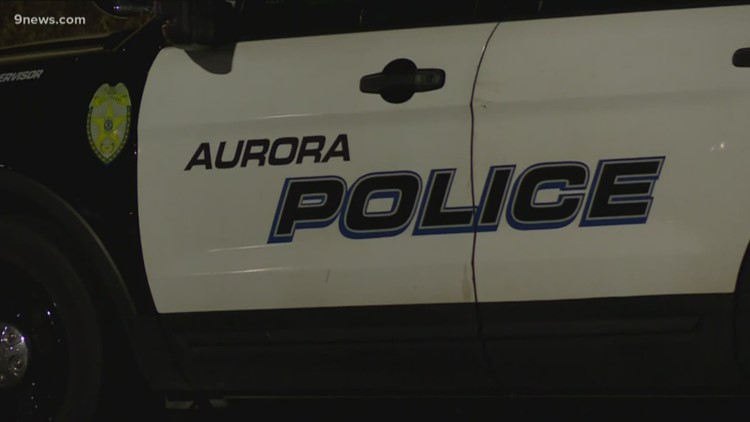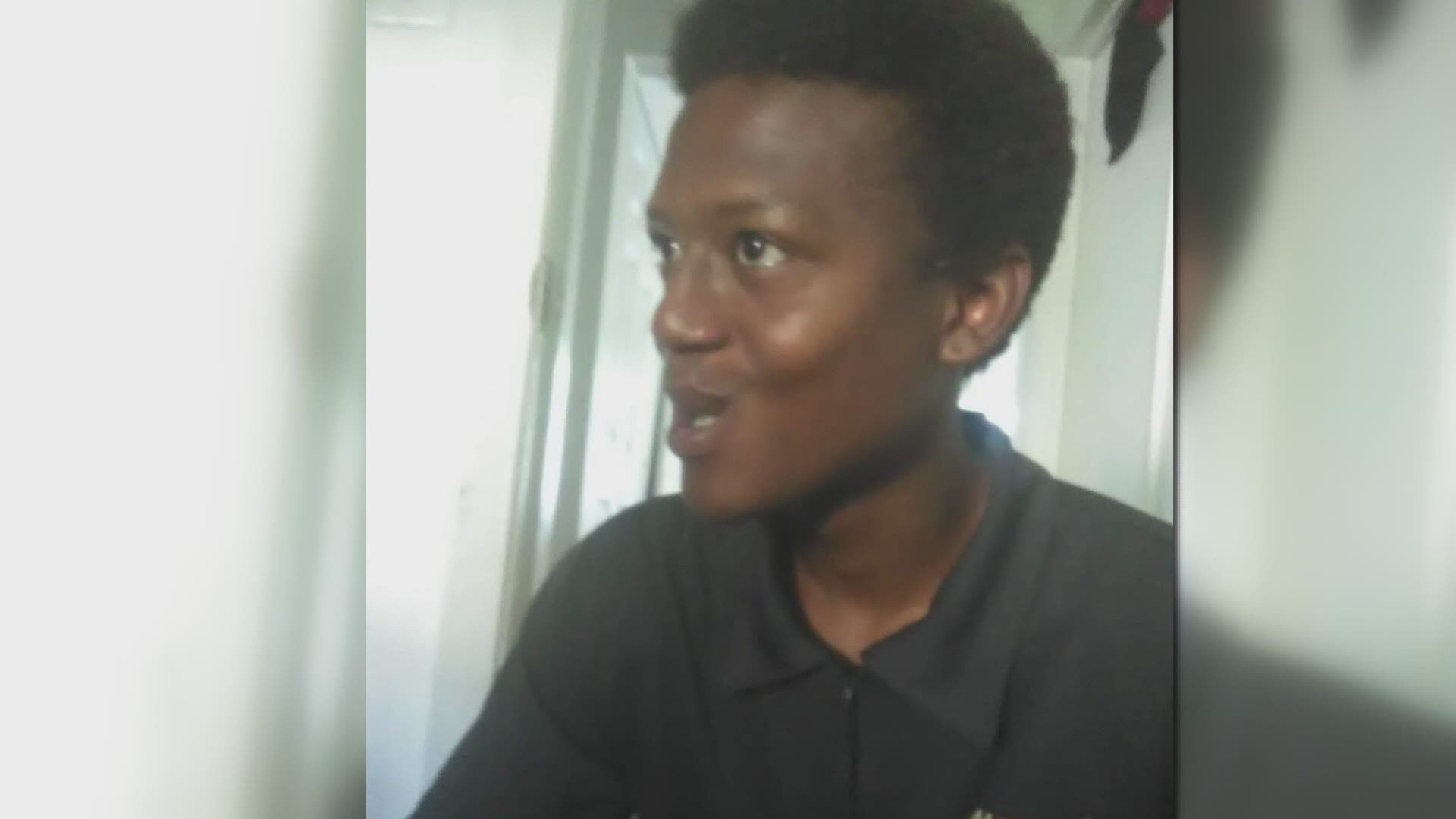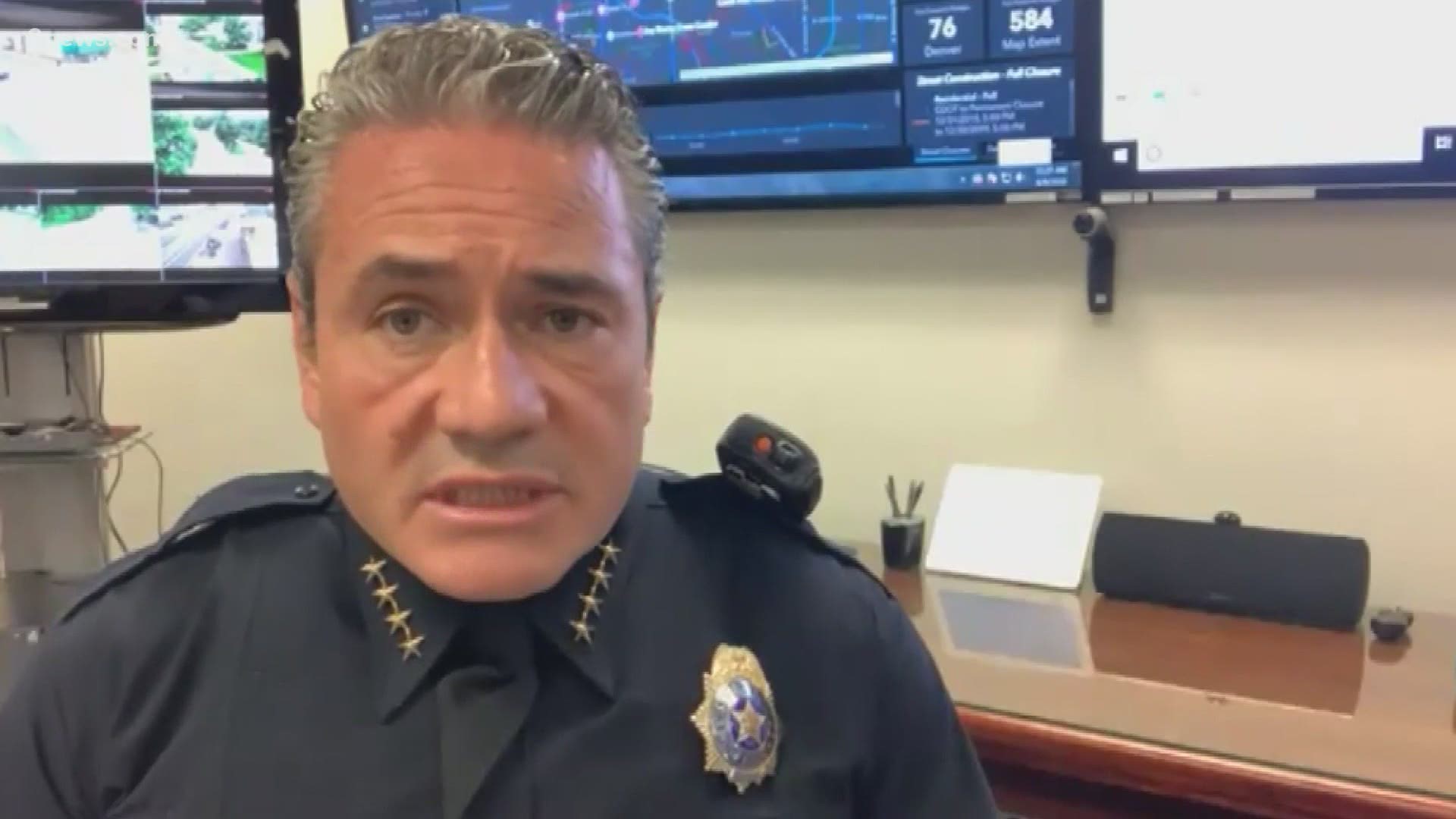AURORA, Colo. — The Aurora Police Department will no longer authorize the use of a controversial type of control hold as it makes changes to its policies and provides new details on an "independent investigation" into the death of Elijah McClain.
The department says recent protests have spurred the decision to examine its use of force policies and training.
It’s been nearly a year since Elijah McClain died after a struggle with Aurora Police officers. He went into cardiac arrest after he was put into a carotid hold and was administered medication to calm down.
The officers were cleared of wrongdoing and never charged.
Aurora Police announced Tuesday officers would no longer be allowed to use the technique some describe as a choke-hold.
"I understand the reason for the city manager to make that no longer authorized and I support his decision," said Aurora Police Interim Chief Vanessa Wilson.
City officials and the interim chief of police held a news conference Tuesday afternoon to discuss policy changes in the Aurora Police Department.
"I think it’s important that these directive changes are coming out because truly there’s been a call to action across the nation of people expecting their police departments to be accountable and I absolutely agree with that," Wilson said.
City officials also provided new details about an "independent investigation" being conducted into the death of Elijah McClain.
Aurora City Manager Jim Twombly said attorney Eric Daigle was examining the case as an independent investigator. Daigle was a former police officer in Connecticut. Twombly has since removed Daigle from the investigation due to concerns he would not be unbiased.
"This week, Mayor Coffman and the three members of our Council Public Safety Policy Committee asked for a new independent investigator regarding the Elijah McClain case. I hear and understand Council’s concerns—as well as the community’s—about the individual that was hired to conduct the investigation. Therefore, I have canceled Mr. Daigle’s contract and will be meeting with the Council as soon as possible to determine our next steps in initiating a new review," Twombly said in a statement provided to 9NEWS on Wednesday.
"Together we all want to achieve meaningful improvements, eliminate racial inequity and make lives better in our community. This review –and ultimately its findings—is a critical step toward these goals."
Aurora Mayor Mike Coffman says if any new information is found during the upcoming review it could be presented to the prosecutor.
"If in fact something new is found, then the district attorney has always said that he would reopen the case," Coffman said.
Removing Daigle came after some members of the Aurora city council alleged he wasn't independent enough.
"I don’t consider Eric Daigle to be independent and neutral due to his long career in law enforcement," Aurora City Council member Curtis Gardner told 9NEWS. "We need a truly independent review. I don’t feel comfortable going back to the public and asking for trust when we had a former police officer conduct this review."
Councilmember Angela Lawson also believes the current investigation isn’t independent enough. She says she was not told Daigle was conducting the investigation until she found out Tuesday.
"Mr. Daigle in my opinion is not independent. He has a direct connection to law enforcement. So I’m not sure if the trust of the community in what he is presenting is going to be true transparency," Lawson said. "I still want an independent third-party review, external from this individual Mr. Daigle."
Tuesday evening, council members Allison Hiltz, Curtis Gardner and Angela Lawson released a statement raising questions about the independence of the investigation.
"In asking for an independent, neutral, third-party review, it was important to us to begin the process of rebuilding trust with our community. Unfortunately, an attorney with a long career in law enforcement that specializes in defending municipal police departments from liability claims doesn’t qualify, in our minds, as a neutral review. This is especially true considering there is a pending civil suit in this case," the statement read.
The lawyers representing Elijah McClain's family also do not believe the investigation is independent enough because of Daigle's background in law enforcement.
Attorney Mari Newman says if enough action isn’t taken by the Aurora Police Department, they are ready to file a federal civil rights lawsuit against the officers and medics involved in his death.
"I believe the police who killed Elijah McClain murdered him," Newman said. "I’m still concerned about a lack of true independence but I’m glad that someone is looking into the Aurora Police officers who murdered Elijah McClain."
Below is a list of the policy changes announced by Aurora Police on Tuesday:
Officer relief
“Officer Relief” refers to the replacement of officers who have been involved in a physical struggle/fight/violent event with a subject by other arriving officers who should be less emotionally involved and may help keep the situation from escalating to unnecessary physical levels. This would also apply to any situation where an officer appears unable to control their emotions or de-escalate the situation on their own. (Read the full directive here)
Duty to intervene
Any sworn member who, while acting in his/her official capacity as a law enforcement officer, witnesses another member (regardless of rank or tenure) acting in his/her official capacity, use force that is clearly beyond that which is objectively reasonable, and lawful, given the totality of the circumstances shall, when in a position to do so, safely and immediately intervene to prevent and/or discontinue the use of force. (Read the full directive here)
Authorized firing of a weapon
In the news conference, Wilson said officers must give a verbal warning before firing a weapon.
Members should not discharge a firearm:
- As warning shots, unless, in exceptional cases where no lesser degree of force would be effective or practical and the firing of a warning shot is the only alternative to the use of deadly force. Warning shots will not be fired when such discharge would pose a danger to any person.
- At persons who have committed only a misdemeanor or traffic violation.
- To prevent the destruction of property or theft.
- When such a discharge is a result of carelessness or the negligent handling of a firearm.
- (Directives include firearm safety and shooting at moving vehicles, read the full document here)
Carotid control hold/less-lethal weapons, techniques
Only department members who have completed departmentally required and approved training and demonstrated proficiency are authorized to carry, deploy, display or use less-lethal weapons. Less lethal weapons must be used in accordance with department training.
Members may utilize the carotid control hold when they are met with violent resistance. This method should be used when other means have been tried unsuccessfully or other means are not feasible.
A proper carotid control hold should not restrict the airway. Members are strictly prohibited from using any chokehold that restricts the airway unless the use of deadly force is authorized
(Directive includes chemical irritants and other weapons, read the full document here)
Suspicions calls
The suspicions call directive, according to Wilson, outlines an approach that aims to overcome implicit bias generated by calls to police. Wilson said officers will be trained to take those suspicious person calls but to determine if contact is required for the individual that matches the description of the "suspicious person." If the officer decides the suspicious person is not actually suspicious, they can resolve the call without making contact and can even go as far as returning the call to the original caller to explain the situation. The goal, Wilson said is to not cause unnecessary tension between police and community members when there is no actual suspicious behavior happening.
Willson said she wanted to make it clear that some of these directives were being discussed when she took over as interim chief but were put on hold during the COVID-19 pandemic.
"I believe we need to look at how we do business, the public is demanding that and we work for the public," she said.
Elijah McClain
Aurora City Manager Jim Twombly said the incidents that have happened recently, including the in-custody death of George Floyd in Minnesota and the in-custody death of Elijah McClain in Aurora, he wants he city to look at all aspects of the Aurora Police Department to see what improvements and policy changes can be made.
Elijah McClain, 23, died on Aug. 24, 2019. This was three days after he suffered cardiac arrest after he was placed in what’s known as a carotid control hold by an officer and later given a sedative to calm him down. The Aurora Police Department (APD) cleared three officers involved in the incident.
Police first encountered McClain after someone called dispatch and said they spotted a suspicious person in a mask walking down Colfax.
McClain's family said he was walking to get an ice tea for his brother and would usually wear a face mask "when it's cold."
A former officer now based in Connecticut is heading an independent review of the McClain case.
Twombly said the report will be made public, and if there’s something in that report that the city or community believes should go back to the district attorney for review, then that will happen.
Coffman added that if the district attorney found something, the case would be reopened.
Denver Police Department
This weekend, when Denver Police announced changes to their policy that includes a ban on carotid compressions, Aurora Police said it was still part of their department’s policy, as a last resort.
This news conference comes the same day that Floyd was laid to rest, and just a few days after a crowd held a rally in Aurora remembering McClain.
It also comes the same day Colorado’s state legislature passed a police reform bill in response to the George Floyd protests that brought hundreds of supporters to downtown Denver for multiple days.
Senate Bill 217 — the Law Enforcement Integrity Act — would end the qualified immunity defense that generally protects government workers from being sued and bans the use of chokeholds.
It would also require local and state patrol officers to have body cameras by July 2023.
SUGGESTED VIDEOS | Local stories from 9NEWS






